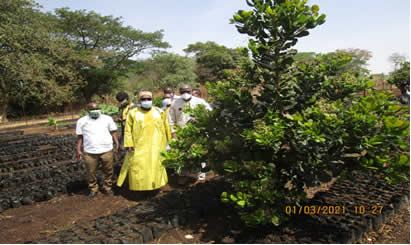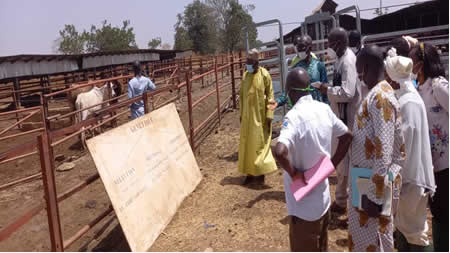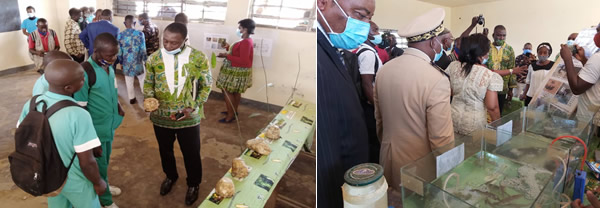The ceremony chaired by Mrs. Sub-Prefect of the Arrondissement of Figuil (North Region), Adda Souratou Soureya, was held on May 27, 2021.
"02 tons of sorghum (Muskwari and S35), 03 tons of maize, 03 tons of lowland rice and 500 kg of cashew seeds". This makes nearly 5,000 ha of sowing for the 8.5 tons of seeds with high yield potential and resistant to crop diseases and climate hazards. This is the composition of the donation of seeds produced by the Institute of Agricultural Research for Development (IRAD) headed by Dr. Noé Woin, which was distributed free of charge to about fifty agricultural cooperatives and common initiative groups (GIC) in the Figuil district on May 27. This solemnity comes more than a month after the one in Bibémi, in the Benue department.
Clearly, this plant material of proven quality will enable the people of this important agricultural production basin in the department of Mayo Louti to start the 2021 agricultural season under better auspices. Especially since, according to the head of the IRAD-Maroua Center, Dr. Sali Bourou, representing the Director General of IRAD on this occasion, "the 2020 agricultural season in Figuil has experienced the adverse effects of rainfall variability combined with those of the COVID-19 pandemic. A real breath of fresh air for these populations when we know, according to experts, that the seed contributes up to 40℅ on the yield.
During her speech, Mrs. Adda Souratou Soureya, the sub-prefect, will specify that: "The gesture of IRAD is part of the government action for the realization of the policy of Great Achievements of the Head of State, Paul Biya, especially with regard to the reduction of poverty in the peasantry, emergency measures against the high cost of living and the response to the effects of the pandemic at COVID-19", As a good mother, Mrs. Adda invited the lucky beneficiaries to make good use of the seeds received, "in order to increase local production to contribute to the national economy in this period of pandemic related to COVID-19. For his tireless efforts in supporting rural populations, the mayor of the locality, Mana Messingué, thanked IRAD and its General Manager, Dr. Noé Woin. And the beneficiaries, through their representative, expressed their thanks to the public authorities. The ceremony ended with a guided tour of the exhibition stand of agricultural prowess and innovations of the institute secular arm of the state in agricultural development.
It should be noted that the distribution of cashew nuts to producers is part of a project prescribed by the President of the Republic in order to diversify cash crops across the country, boost the production of cashew nuts highly prized internationally and make Cameroon a potential exporting country, improve the incomes of producers and consequently reduce the level of poverty of the population, precisely in the northern and eastern parts of the country. Already in 3 campaigns (2018, 2019 and 2020), more than 4,000,000 cashew and Acacia senegal seedlings (i.e. more than 40,000 ha of land) have been produced and distributed free of charge to the populations by IRAD.

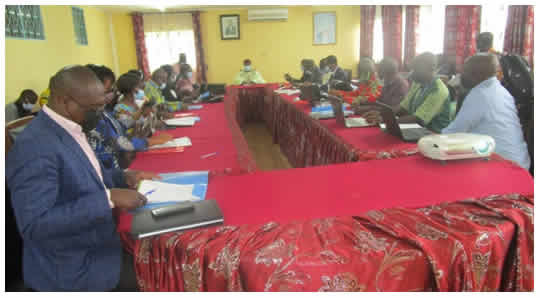
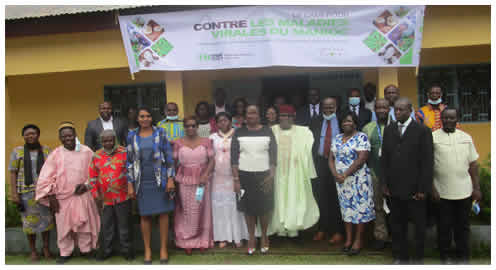
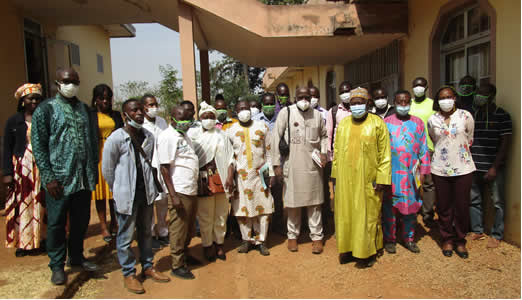 Accompanied by senior researchers, Dr. Noé WOÏN made a working visit, from March 1 to 3, 2021, in the Operational Structure of the Institute located in the city of Ngaoundéré (Adamaoua region). For a productive and competitive research, he gave priority to cattle, pig, beekeeping, aquaculture and poultry production.
Accompanied by senior researchers, Dr. Noé WOÏN made a working visit, from March 1 to 3, 2021, in the Operational Structure of the Institute located in the city of Ngaoundéré (Adamaoua region). For a productive and competitive research, he gave priority to cattle, pig, beekeeping, aquaculture and poultry production.